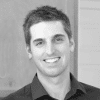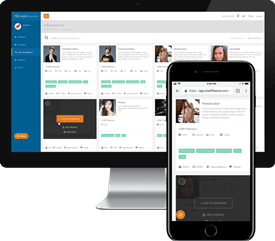Last Updated on January 7, 2021
Rickard Jean-Noel is the founder of Real Word Ministries and The Real Word TV. Rickard has a Bachelor’s degree in Law and Paralegal Studies from CUNY New York City College of Technology. Rickard worked on a successful political campaign before working at a prominent law firm then a nonprofit. Rickard currently works for another nonprofit called CAMBA. Rickard is also a preacher, motivational speaker, husband and father. You can learn more at therealwordministriesinc.org and follow Rickard on Facebook, Instagram, LinkedIn and YouTube, to name a few.
Can you tell us a little bit about your background, including how you got into ministry?
So I came to America at the age of two from the Island of Haiti. During that time my country was going through social and political distress. They always had coops in Haiti where the military and rebels would take over the country. So we came to America at a young age. When I came to America, I lived in Bushwick, Brooklyn that was during, I guess, post crack era. So we started at very humble beginnings. We used to live in a room in the basement, the five of us, my mother and my father, my sister, my brother and myself. And from those humble beginnings, my parents had always told me that the best thing to do is to stay with education.
Don’t be a follower, be a leader and so with those principles, we always stayed intact, but as we got older, I always was in a church, but I didn’t really take church seriously, because of many different things, because of the social construct of church where it’s like they treat people that got money in church better than people that don’t have money. People with money, they’re able to tied more than people that don’t have money. And at the time growing up, we grew up on welfare, on food stamps. I didn’t see my real dollar up until the age of 10. And so all those things, that was part of my growing up. Things I had to deal with. My parents, they struggled a lot, but they worked hard and eventually they bought their first home. That was when I was maybe… I think 10 years old, they bought their first home.
And like I said, I was always in church, but I didn’t take church as seriously as I do now. As I got older I was caught up in I guess the street life, because at one point I was incarcerated. I was working at a place of business. I was working in a retail business and one of my friends and I, he committed a crime and I was there when he committed the crime. And because I did not tell on him when he committed the crime, we both ended up going to jail and we ended up going to central bookings. And after we went to central bookings, I ended up losing the job. So I was placed on probation and then I had time to think.
So I took that time to reflect on life and everything that was going on. I started taking school more seriously. When I started school, I was studying dental hygienist in college, but I wasn’t really interested in college. I was just going to college because my dad said if I was going to live under his roof, I had to go to college. So I was just going, just to go, just like I was going to church, just to go. And I ended up on academic probation.
I ended up taking some classes, almost dropped out of college, but I stayed there taking one class a semester until I got my GPA back up and I ventured even deeper into the streets because I was more addicted to fast money and it wasn’t until I had this pastor that gave me the opportunity to preach one day, he said, “I’ll let you preach because you have a lot of leadership qualities in you. And because you have leadership qualities in you, you just need someone to believe in you.” And so he gave me the opportunity to preach and my first sermon was called “The Reincarnation of Rickard Jean-Noel” because I felt like it was a first start from where I came to where I’m at now. So I used the pictures in my mother’s photo album to basically record my life from start to finish.
And I did a PowerPoint presentation in the church and they was like, “Wow, we didn’t know you had this amount of talent.” And from there I did another sermon called “He Who is Without Sin”. And then after my third sermon, honestly can’t even remember the name of it. I think it was called “Reborn in Christ”, but that one went viral. Well, to me it went viral. It hit 50,000 views and that’s when people started paying attention to what I was doing and then I became one of the youth ministers at the church and then I got ordained as a deacon. And then the rest is history like they say.
Tell us a little bit about Real Word Ministries and The Real Word TV…
So from preaching I’ve built a pretty big following, and so I didn’t want to be a pulpit preacher where I’m just wearing these fancy suits and standing in the front and talking down to people. I felt like my ministry was more so touching the people. So I said, what can I do since I had a big following on Facebook at the time, I already had 5,000 friends on Facebook and people were always sharing my post and watching the things that I post. So I said, okay, let me use Facebook live. That’s when Facebook live first came out and I started off by just doing short videos in my room. And so I would do short videos in my room and then people would watch it, a couple 100 people. And then someone was like, “Why don’t you just do a show, like a podcast?”
And I was like, “Let me see.” So then I contacted a few people to start it and the day when it came to other people came and we did the first season “Why Do I Believe in God?” And we’re currently in the fifth season, 120 episodes in right now. So we did the first episode “Why Do I Believe in God?” and then I remember when we hit a thousand views, I was like, “Wow, we hit 1000 views. That’s cool. Let’s keep going.” And then we kept going, kept going, kept going. And the person that started the show, he was like, “Let’s do some community service because not that much people do community service.” And then he was like, “Let’s start off by giving away diapers because there’s a lot of mothers out there that have kids that can’t afford diapers.” So I said, “Okay, how are we going to raise the money?”
He said, “Let’s use the show. There’s people watching the show.” So I said, “Okay, cool.” So we started a GoFundMe account and then we raised up a couple $100. We went to BJ’s, we bought a couple 100 diapers, a couple 100 wipes, and then we gave them out and then people was like, “Wow, we’ve never seen anyone do this before.” It was like, yeah. Then when Thanksgiving came, we applied the same principle. And then we gave out 75 turkeys the first year. And then we got people to invest in the company, and that’s when they was like, “Yo, you guys should become a nonprofit because that’s what you guys are doing.” And I was like, “Okay, cool.” So then we applied for the nonprofit status and then we was like, so from the Real Word TV, the Facebook live show, we eventually started a nonprofit, and then we applied for 501(c)(3) status from the IRS and then we became an official non for profit.
Then the Real Word TV is, one day I had this guy, he’s a mentor of mine. He was like, “Oh, I see you guys doing the Facebook live shows. You guys should try to get on TV.’ And I was like, “How do we do that?” And he said, “There’s a TV station downtown Brooklyn, a local public access television show. You guys should be able to get on. You guys are consistent enough and the topics that you talk about is good enough.” I said, “Okay, cool.” So I went down there, I spoke to the producers, they was like, “Okay, you’re going to have to do producer training and this and that, unless you film yourself and you build your own studio.”
And I was like, “Okay, challenge accepted.” So I built my own studio and then I hired people from Upwork, the freelancing app. And I would hire people from India, Outsource because it’s cheaper. And then I would film it on Facebook live and I would send them the raw video and then they would edit it and then we would send it to the TV station. So we did a couple TV specials and then eventually we got picked up for an entire season. And then since then we’ve been on TV.
How do you structure your average week so you can get everything done that you need to accomplish and still have some time for yourself?
I run a very tight schedule. Sundays are usually my chill day, my family day and also homework day. So Sunday is probably the day that is less constricted, but Mondays I work nine to five. Now I’m working from home Mondays and Tuesdays. So from nine to five, I work my job. My day starts most of the time at 5:00 AM. So from five to seven, I workout. Sometimes I walk about three, four miles a day for about two, three hours. So during my walks, I film short videos on Facebook, Instagram, motivational videos while I walk past… I walk past buildings like my old jobs, places I went to school and I give people a short testimony just to motivate the people. And I do a little workout. I get home by seven. Seven I get ready for work. Get the kids ready, give them breakfast.
By 8:30 I’m out the house. If I have to go into office by five, I’m home on Mondays. Between five and six, I spend a little bit of time with the family, prepare for a show. The show starts at 7:30 where we shoot live at the studio. And I’m usually at the studio from maybe seven to nine, 9:30 depending on how will it be finished, if the people after the show want to congregate and talk about the show. Then Tuesday’s nine to five again for work. And then I got class from 6:30 to 9:45. So then after that I probably just relax, watch TV just to ease my mind and then Wednesdays nine to five for work and then get off work study, do homework, write assignments. Thursdays do assignments as well. Fridays… Sometimes Wednesdays I do youth ministries with the youth Wednesday afternoons.
Friday is nine to five work. And then I do youth ministries with the kids sometimes now on Zoom and with the family. Saturdays, I do service. I do service with them on Zoom now too instead of going in. Sometimes I go into the actual church, this Saturday I went and I shot a live video just to motivate the people that were still here with them. And then the afternoon we do an open forum where we speak to the kids about topics that’s going on, like social issues. The other day we spoke about police brutality and social economics and working together to put our money together and do something with the people. So that’s usually my schedule, and every now and then on my days off, like Wednesday, Thursdays in the middle, on my schedule, a couple of interviews back to back to back that people want to meet, people want to talk, things like that.
As an influencer, have you had the opportunity to partner with any brands and any collaborations to date?
I mostly partnered up with other influencers, local influencers, other motivational speakers, people that write books, other preachers. Sometimes they invite me to come speak at their church. I was supposed to do a week of preaching in Harlem before COVID happened and then that canceled. I’ve also been working with local politicians, like city Councilman. I was working with the Brooklyn Borough President. I’ve worked with Mayor de Blasio before, but all that slowed down because of COVID.
In regards to brands, if the brand aligns with what I’m doing, then yes I’ll work with them. If not, then I don’t really work with them. Some brand’s like, “Okay, wear our brand, but you have to pay for it and we’ll give you a discount off.” Those I’m not really interested in it. You’re just trying to get me to spend money because you’re just giving me a coupon and I’m giving you free advertisement.
Who are some people or some resources that have influenced you along your journey?
On my wall, in my home and in the wall in my studio, I have a picture of Malcolm X, Martin Luther King, Nelson Mandela, and Obama sitting drinking coffee. And I’m like, what makes these men great was their mind. I had a sermon one time where I said, “Try to fight your wars above the shoulders, not below,” because below is when you get physical. Above the shoulders is all mental. And I respect those men for their intellect. When I was younger, I was more physical but as I got older, I started to weaponize my mind instead of my fist. And it got me way further in life, in general. In regards to people close to me, I’ll say my parents, my mother, my father, I draw inspiration from them.
I draw inspiration from people that came from the same neighborhood as myself. People from Brooklyn that’s doing big things. Individuals like Michael Jordan, he was from Brooklyn, Spike Lee, even some individuals, I might not like their politics, but I respect their grind. Even Donald Trump, I might not like his politics, but to see the things that he was able to accomplish, I respect it. I was watching his documentary on Netflix on how he was able to build on what his father Fred Trump did. So that was inspirational. Even Obama, and some local people that I know as well, I like to read up on bios, I might spend two, three, four hours just on a Wikipedia. Wikipedia, you get lost on that, you clip on one person, you go to another person, another person, another person.
There’s a guy, I don’t know if you’ve ever heard of him. He’s a former NASA astronaut, but he also wants to medical school, he also have a degree in engineering. He’s an army veteran, ex Navy SEAL and all these other things. And I read his story through this other NASA astronaut and then I actually connected with him through LinkedIn, and then he shared his story with me and I speak to him every now and then too. So regular people that was able to achieve great things just because they were persistent and they didn’t give up.
Note: Influencer Spotlight interviews are edited for time and clarity.

Andrew is the Head of Client Services for Intellifluence and has a background in communications. He is committed to helping brands get the most out of their campaigns and is the co-host of the Influencer Spotlight series.





